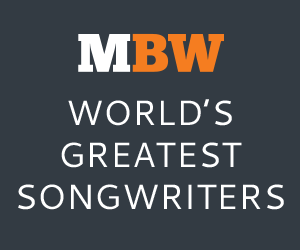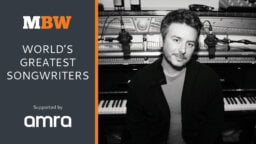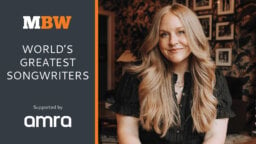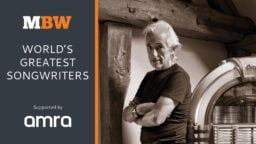MBW’s World’s Greatest Songwriters series celebrates the composers behind the globe’s biggest hits. This time out, we talk to Starrah, one of the most successful young writers in hip-hop and pop today, about writing number one hits like Havana and Savage Remix, working with Madonna and her newly-formed publishing company, 3:02. World’s Greatest Songwriters is supported by AMRA – the global digital music collection society which strives to maximize value for songwriters and publishers in the digital age.

Starrah is one of the most innovative, interesting and in-demand songwriters to emerge over the last 10 years.
She is a young, Black, LGBTQ woman who writes modern hip-hop classics and mainstream pop chart smashers – and doesn’t really want the world to know who she is. Or at least doesn’t want the world to know who she really is.
There’s a biopic disguised as a paragraph right there.
She grew up in a small Delaware beach town, the youngest of nine, and became the first in her family to graduate college. By then she had already started writing songs and sharing them online, building up a network of friends and collaborators that proved invaluable when she moved to LA to pursue a career in music.
An early big break came when she was signed by her manager, Nick Jarjour, who has previously said of discovering Starrah, “I didn’t know if she was a girl or a boy, 11 years old or 27 years old; she was the most ambiguous person I’d ever heard.”
From there, success came relatively quickly – and then unequivocally spectacularly. Her first cut was Kid Ink’s 2015 single, Be Real, and over the next couple of years she co-wrote songs for, amongst others, Rihanna, Travis Scott, Drake, The Weeknd, Nicki Minaj, Calvin Harris and Katy Perry.
In 2017 she wrote two number one records – Havana by Camila Cabello and Girls Like You by Maroon 5 both early proof, if needed, that Starrah can write in any genre.
Her third number one was Savage Remix by Megan Thee Stallion feat. Beyonce [2020]. The track won the Grammy for Best Rap Song, although Starrah’s aversion to awards shows/the spotlight meant that she wasn’t at the ceremony. Instead, she stayed at home and “ran round the house screaming”, which seems like a solid choice.
In 2019 she sold her catalog to Merck Mercuriadis’ Hipgnosis Songs Fund. As a result, both she and Jarjour became members of the company’s advisory board and are now part of its Richter scale-registering revolution, with the value of songs and remuneration for writers at the epicenter of the blast.
More recently she launched her own publishing company, 3:02 (it’s the area code for Delaware), as a JV with Pulse Music Group, which signed her as a client in 2015. It is a vehicle she hopes will not only sign great writers and deliver big hits, but also stay unswervingly true to the ‘creatives-first’ mission on which it is founded.
Social anxiety means that Starrah rarely gives (and almost certainly never enjoys) interviews (or photo shoots, she always finds a way of at least partially covering her face – see above), so MBW is partially surprised and completely thrilled when word comes back to say she will talk about her life, work, ethos and ambitions as a songwriter…
What music did you listen to as a kid and who were the artists that first inspired you?
The music that I listened to on my own as a child was Lil’ Bow Wow, B2K, Lil’ Romeo, Lil’ Sammie – all of the Lil’s.
My siblings were seven and eight years older than me though, so when I would ride in the car with them I was listening to Eve, Ruff Ryders, Hot Boys etc.
How did you break into the business?
Hard work – networking through Twitter and Instagram, and being at every studio session, just trying to perform better than I did the day before.
Why did you gravitate towards songwriting rather than being an artist?
I was rapping at first but it wasn’t fulfilling for me. I liked experimenting with genres and wanted to learn a new skill.
I have a friend named Shinique, who co-wrote Medusa for Chris Brown, and at the time she told me that she believed I could write songs. I took her advice and pursued it.
What were the tracks or sessions that changed the game for you and moved you into the big leagues?
Be Real, by Kid Ink ft Dej Loaf was my first song to get a proper release [in 2015]. And then Girls Like You by Maroon 5 [2017] was a song I wrote in 20 minutes that went to number one.
For me it meant everything and it changed the way that I approached music.
I built lifelong friendships from those sessions, with Cirkut, Jason Evigan and Gian Stone – which, to be honest, is more important to me than ‘the big leagues’.
Can you tell us about your part in writing a couple of specific tracks – Havana and Savage Remix?
With Havana, [producer] Frank Dukes came to the studio and asked me to write a post hook. I did it in 15 minutes. It was my first number one record.
When I wrote my part of the Savage Remix it actually took three submissions.
I didn’t really hear much feedback on the first two, so I knew the answer was no. After that I tried one last time and that final revision is what made the cut.
How did you come to work with Madonna on Madam X [2019] and what was that like?

Madonna called me on the phone over the holidays. I was with my family. I stepped outside to take the call and she said she wanted me to come vibe with her.
We worked in London and it was an amazing experience. She has such a beautiful soul and I’m thankful for the time that we spent creating with one another.
You worked in quite small groups on that record, is that something you enjoy?
Yes, I love working mostly by myself, to be honest.
Smaller groups and smaller cozy studios are ideal environments for me. I like to build true bonds with the people I create with.
Songwriting in general has become much more social than solitary and seems to involve a lot of networking, how do you feel about that aspect of the job?
I have my music family and that came about by being social and sharing our visions with one another. So I think that it’s necessary, otherwise it does start to feel like a job. Building genuine creative connections is the key to a healthy work environment.
What are the most important skills and attributes you bring to a writing room?
I never do what people expect and I’m efficient. I write full songs fairly fast.
In 2017 JUSTIN TRANTER SAID the music industry was “shockingly homophobic, misogynistic and racist”. That was when you were really breaking through. was that your experience and has that situation improved?
That was my experience for sure. I’ve been in situations where people think I’m supposed to just accept whatever they bring me, that I’m not allowed to have an opinion or choice about what I’d like to work on – so they call me complicated or a diva.
A man with that same vision for themselves would be looked at as a boss. Or some people just plain leave me out of rooms or attempt to put me in a box.
“some people just plain leave me out of rooms or attempt to put me in a box.”
Those reasons seemed racially motivated, especially when they would call me an urban writer when I have multiple No. 1 pop songs.
I’ve now created an environment for myself and my team that is inclusive for everyone from all walks of life; that’s my favorite thing about what we’re building at 3:02.

Can you tell us about the formation of 3:02 and about your plans and hopes for that company?
3:02 was formed by me just wanting to provide opportunities for my friends and create a healthy work environment.
I want creatives to have a safe space and room to be the best version of themselves. My hope is for the company to be the catalyst for positive change in the industry.
I approach everything from the perspective of a creative and I put my team’s mental, physical and spiritual health first.
Who have been your mentors in your career to date?
My mentors to date have been my manager Nick Jarjour, and my partner [in 3.02, songwriter and Pulse Music Group co-founder] Scott Cutler.
Who are your favourite songwriters at the moment?
My favorite songwriters never really change: The-Dream, James Fauntleroy and Max Martin.
What do you enjoy most about your job?
I’m literally living out my dream every single day. It’s not a job to me, it’s something that I truly enjoy doing and that’s the most important thing for me.
If you had a magic wand, what single thing would you change about the industry?
The hustle mentality. I hate the way people push the idea that the hustle mentality is the best way to fuel creativity; it takes away the passion and soul from the music.
What piece of advice would you give to a young songwriter starting out?
Have fun and make music that you want to listen to. Don’t chase trends. Create your own style and stand on it.
Music Business Worldwide





